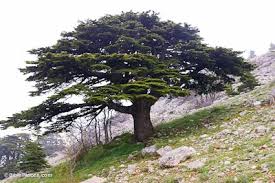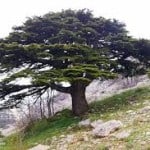The saga of the biblical Metzorah (spiritual Leprosy) is the saga of choices. Generally the Metzorah has lost his power of choice. He has become subjugated and enslaved by his anger, insecurities and jealousy. Those are the ingredients that led to the first murder in the Bible.
Now it came to pass at the end of days, that Cain brought of the fruit of the soil an offering to the Lord. And Abel he too brought of the firstborn of his flocks and of their fattest, and the Lord turned to Abel and to his offering. But to Cain and to his offering He did not turn, and it annoyed Cain exceedingly, and his countenance fell.( Genesis 4:3-5)
The anger fueled by envy and insecurity led to murder and the ensuing punishment was “exile”.
“When you till the soil, it will not continue to give its strength to you; you shall be a wanderer and an exile in the land.(ibid 12)
The Metzorah was sent into exile as well
”All the days the lesion is upon him, he shall remain unclean. He is unclean; he shall dwell isolated; his dwelling shall be outside the camp.”(Leviticus 13:46)
There are several causes of this Tzaraat affliction, the foremost of them being the sin of slander. Yet all these reasons share one common source and cause. They are all rooted in the sin of arrogance and haughtiness. It is in the midst of this enforced exile and solitude symbolizes both the Metzora’s self-imposed separation from his own divine purpose and from his connection to his fellow Jews. It is in the solitude of exile that the arrogant heart is softened. Only after softening can it blossom forth into sincere Teshuva (repentant Return)
The ritual that is used to purify the Metzorah includes instructive symbols and metaphors. This ritual, the process of purification required two live birds ,a stick of cedar wood, red-dyed wool thread and a branch of hyssop.
After one bird is slaughtered, the other live one is dipped in its blood and is set free. The strip of red crimson wool represents the sinfulness that will become whitened by repentance, “though your sins be as scarlet they shall be as white as snow.” (Isaiah 1:18). They will be whitened when we confront them and repair them.
In explaining the use of the cedar wood with the hyssop branch , Rashi points to its being symbolic of the vanity and haughtiness that brought about the sin in the first place He explains quoting Midrash Tanchuma that ” because he has exalted himself like a cedar… he should humble himself like a grass( the hyssop bush).
Yet the cedar wood points in another direction as well. King David declares, declares, “The righteous bloom like a date-palm; they thrive like a cedar in Lebanon.( Psalm 92:13, )” In the Song of Songs, the lover is described with the words, “He is majestic as Lebanon, Stately as the cedars” (Song of Songs 5:15). The cedar wood was meant to symbolize to the returning Metzorah not to lose his “sense of self”. The true meaning of humility is not about being broken and unworthy, but to be humble even as one stands straight and tall
This is the vessel that G-d truly wants. The vessel that would be worthy of His name. This is the type of vessel that Hashem wants His people to become as well. To be humble and repentant, while at the same time being courageous and forthright.
What is true of the individual is trues was well for the people, as a people. The same process of exile became a necessary ingredient of our rebuilding .The tractate of Sanhedrin tells us “Galut is atonement for everything,” (Sanhedrin 37b) . It is in the exile and the yearning to return that we will regain our strength to break =forth to be what we need to be. Maran HaRav Kook taught that the constraints of the wound up spring is what gave us the power to break forth into freedom.
That was the reason for the long exile in Egypt and that external pressure was the catalyst for the triumphant Exodus. That will also be the only way to combat the physical attacks of our neighbors and the political attacks of those who claim to be our friends.
This will be the only way to truly rebuild out of exile.
LeRefuat Yehudit bat Golda Yocheved

